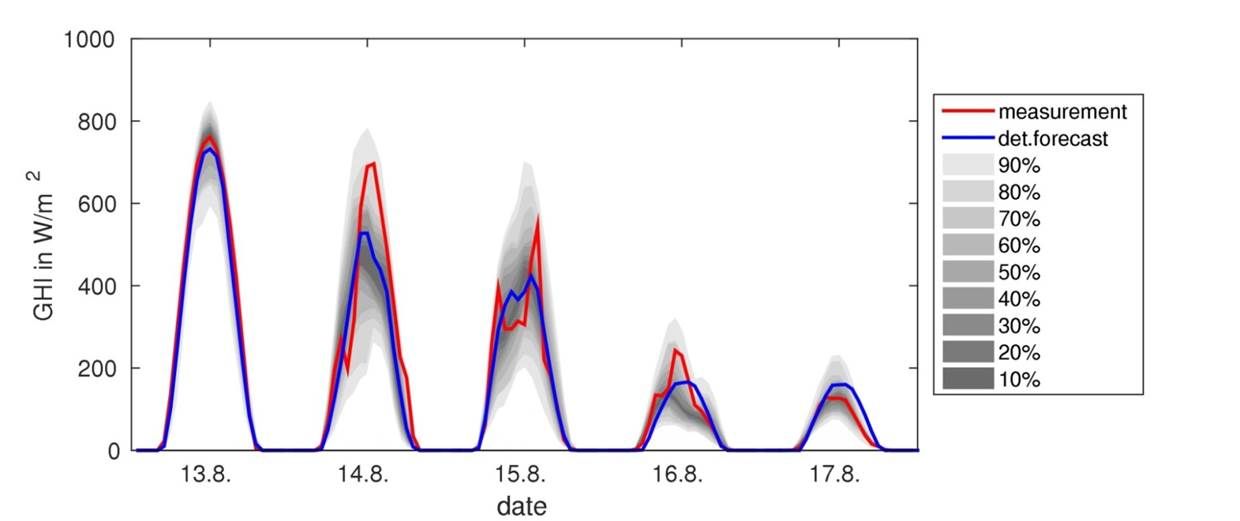| Duration: | September 2016 - December 2019 |
| Contracting Authority/ Sponsors: | Federal Ministry for Economic Affairs and Energy (BMWi) |
| Project Partners: | innogy SE |
| Project Focus: |
ALPRO – Self-Learning Algorithms for PV Power Forecasting as an Instrument for Decentralized Energy Management

The goal of the project is the provision of algorithms to generate intra-day and day-ahead forecasts of PV power generation optimized for the specific PV system and its location. The algorithms to be developed are supposed to increase the economic efficiency of decentralized energy management systems with respect to one or several specified variables, such as the maximization of internal consumption, prevention of curtailment, grid usefulness, peak load reserve or storage design.
The application fields of decentralized energy management are grid-connected PV systems of private and commercial customers with a nominal power from a few kW to several hundreds of kW with integrated storage and prospectively with options for load shifting.
PV performance forecasts consist of two elements. The weather and irradiance forecasts at the location of the system are the first step. The project will assess the reliability of different approaches to forecasting with respect to the application for energy management. Probabilistic approaches are especially intended to quantify the uncertainty of the forecasts. This can be used to select, optimize and possibly combine models. Furthermore, the probabilistic approach is supposed to provide additional data for an economic optimization of energy management. That way, the system can, for example, stand by with reserves in situations with increased forecast uncertainty.
The second element represents the transfer from local irradiance to PV power. The goal of the project here is the development of algorithms without the requirement of complex local parameter settings since in case of application especially for smaller systems not all parameters relevant for the yield can be individually analyzed and modeled with justifiable efforts. Both modeling steps will be carried out in the project through adaptive learning using measured PV values.
The algorithms to be developed are validated by Innogy SE and the Fraunhofer ISE in comparison with field measurements on PV systems and their forecast accuray is compared with non-adaptive processes. Additionally, the economic potential of the method is examined by modeling specific application cases with a virtual energy management system, PV generator, storage and loads.